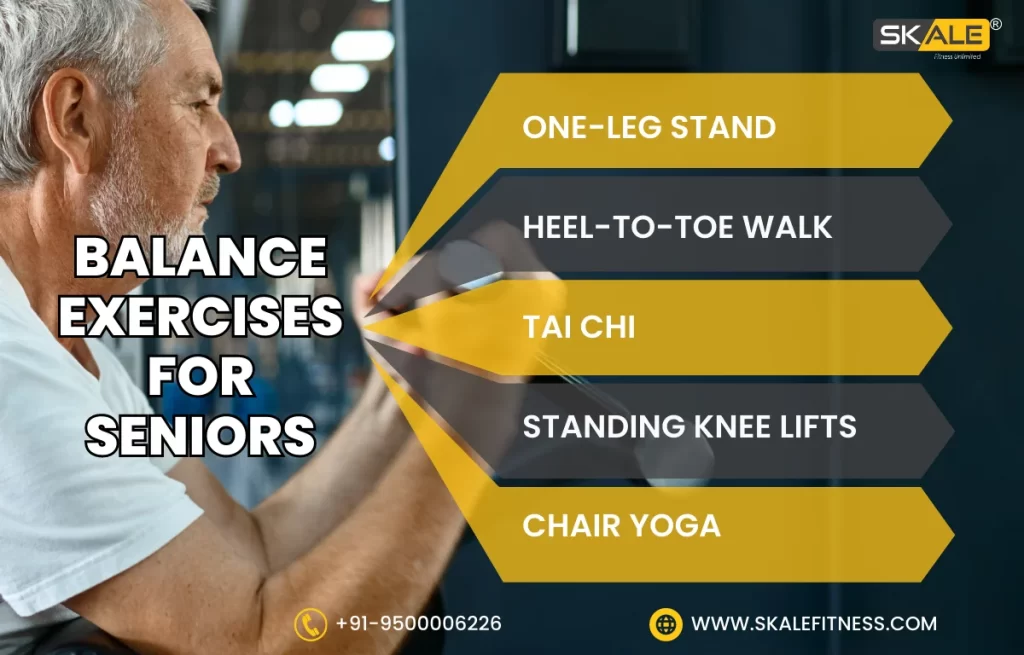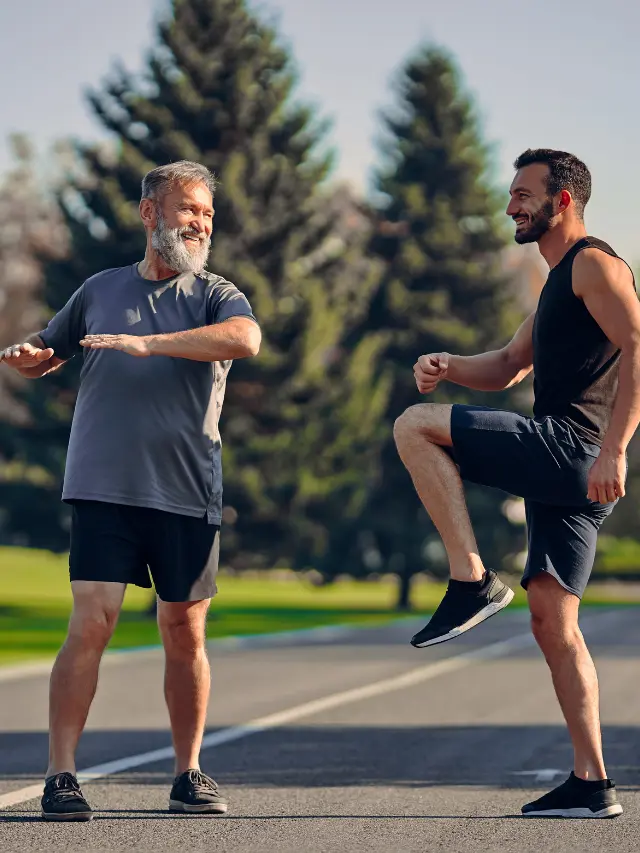When we go older, it is important to maintain a healthy and active lifestyle. Regular and balance exercises for seniors are essential as it offers numerous physical and mental benefits, including reducing the risk of chronic diseases, improving cardiovascular health, and promoting independence and overall well-being. In this blog, we will explore the importance of exercise for seniors and the many benefits it can provide.
Physical Benefits of Exercise for Seniors
One of the most significant physical benefits of balance exercises for seniors is reducing the risk of chronic diseases. Chronic diseases such as heart disease, diabetes, and osteoporosis can have a significant impact on quality of life and independence. Regular exercise can help to prevent these diseases by improving overall health and reducing the risk factors associated with them.
Another key physical benefit of balance exercises for seniors is improving cardiovascular health. Exercise helps to increase blood flow and reduce blood pressure, which can help to improve heart health and reduce the risk of heart disease. Additionally, regular exercise can help to increase strength, flexibility, and balance, which are important for maintaining independence and physical function.

Mental Benefits of Exercise for Seniors
In addition to the physical benefits, regular exercise also offers numerous mental health benefits for seniors. Balance exercises for seniors can help to reduce symptoms of depression and anxiety and improve overall mood. Additionally, exercise has been shown to improve cognitive function, including memory and concentration, and may even help to reduce the risk of dementia.
Types of Balance Exercises for Seniors
There are many different types of Balance exercises for seniors that are suitable, including low-impact exercises such as yoga, swimming, and tai chi. Resistance training and strength training are also important for seniors as they help to build muscle and improve physical function. It’s important to remember that exercises can be modified to accommodate any physical limitations and to make them safe and enjoyable for seniors.
Encouraging Seniors to Stay Active
Despite the numerous benefits of exercise for the elderly, they sometimes face barriers to staying active, such as lack of access to equipment or facilities and limited mobility. To help overcome these barriers, it’s important to find an exercise that seniors enjoy and to make exercise accessible and convenient. Joining a local fitness class, finding a workout buddy, or incorporating daily household chores into an exercise routine are all great ways to stay active and healthy.
Simple balance exercises
Here are some straightforward balance exercises:
- Single Leg Balance: Stand on one leg for 10-30 seconds, then switch to the other leg. Hold onto a surface for support if needed.
- Heel Raises: Rise onto your toes, hold for a few seconds, then lower back down. Repeat 10-15 times.
- Tandem Stance: Stand with one foot directly in front of the other, heel to toe, for 10-30 seconds. Switch foot positions and repeat.
- Clock Reach: Stand on one leg and reach your opposite arm forward, to the side, and backward, mimicking the positions of a clock. Switch legs and repeat.
- Mini Squats: Stand with feet hip-width apart, lower into a squat by bending your knees slightly, and return to standing. Repeat 10-15 times.
- Marching in Place: Lift your knees high, alternating legs as if marching, focusing on balance and control.
Conclusion
In conclusion, regular exercise for the elderly is essential as it offers numerous physical and mental enhancements. By reducing the risk of chronic diseases, improving cardiovascular health, and promoting independence and overall well-being, exercise can help seniors to maintain a healthy and active lifestyle. By encouraging seniors to stay active and providing them with the resources and support they need, we can help to improve their quality of life and overall well-being.





